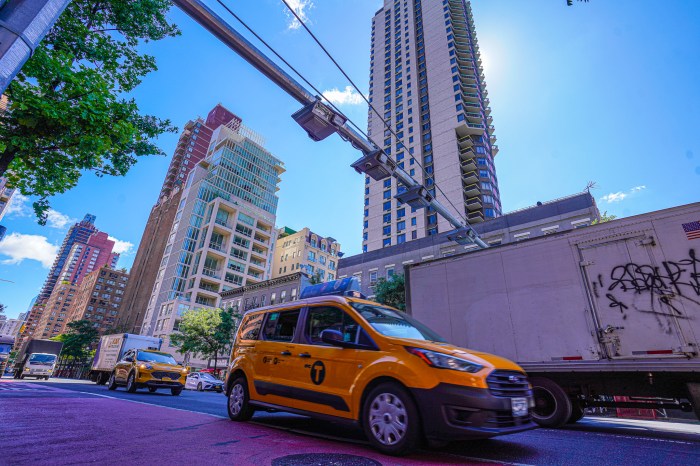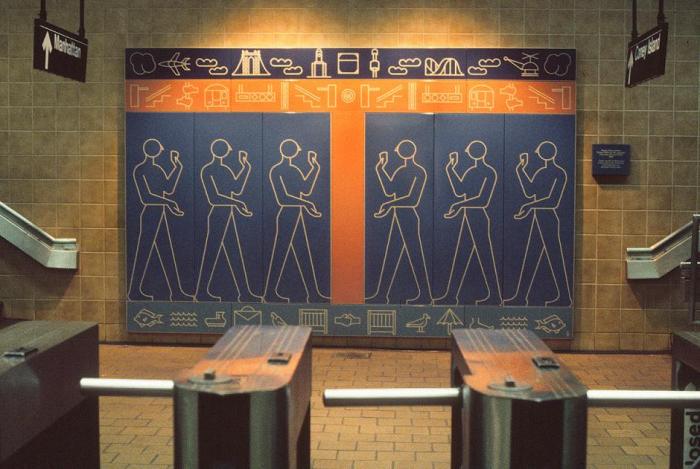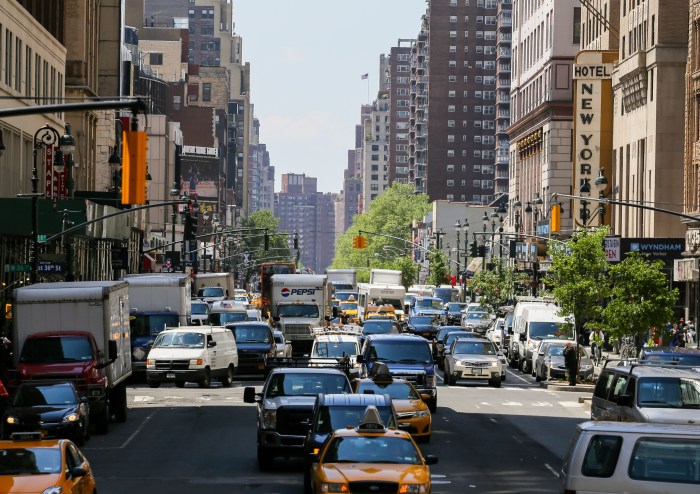
New York City’s 12-month moratorium on new for-hire licenses for Uber and other ride-hailing companies is now in effect.
Mayor Bill de Blasio on Tuesday signed a package of five of bills into law geared toward regulating the booming app-based car service industry, including the nation’s first cap on such services. Drivers and advocates flooded the City Hall rotunda for the occasion, celebrating what they and other proponents believe will help reduce congestion, boost driver wages and set a model for cities around the world.
“The app-based cars were flooding this city and it became increasingly clear this was part of a very cynical plan to oversaturate this city, to oversaturate this market on purpose because of corporate greed,” said de Blasio, who described the event as a victory for working New Yorkers.
There are now about 80,000 cars affiliated with Uber, Lyft, Juno and Via in New York City, according to a recent study by The New School, and about 2,000 were being added to city streets each month as the cap became law. Meanwhile, congestion in Manhattan’s core has increased and the city’s professional drivers across all industries complained of low wages. Industry advocates have linked a recent spate of six driver suicides to financial difficulties.
In addition to the 12-month ride-hail license pause — during which the city will further study the industry’s impact — the package allows the city to set a minimum pay for drivers and also waives license fees pertaining to wheelchair-accessible for-hire vehicles. Another bill requires new licenses for high volume transportation services with more than 10,000 trips a day.
The license freeze carves out an exception for new drivers with wheelchair-accessible cars, and the city’s Taxi and Limousine Commission maintains the right to lift the cap if there is a need identified in a specific area.
City Council Speaker Corey Johnson, who shepherded the bills’ passage last week, said he would continue fighting for congestion pricing, driver benefits and the establishment of a health fund for ride-hail drivers who work as independent contractors.
“These new laws are a common-sense approach to a very complicated situation. These laws are not about stifling innovation or taking away a service that many New Yorkers have come to rely on,” said Johnson.
Uber has vocally opposed the cap, and spokeswoman Alex Anfang criticized the mayor for not supporting congestion pricing — a plan many experts believe could improve service while also funding subway improvements.
“With the stroke of a pen, Mayor de Blasio has shown his indifference to millions of New Yorkers who live in the outer boroughs and could be left stranded because of the broken subway system that he refuses to fix,” Anfang said in a statement. “We urge him to reconsider his opposition to the one solution that transportation experts and editorial boards agree would actually solve for congestion and fix the subways — comprehensive congestion pricing.”

































